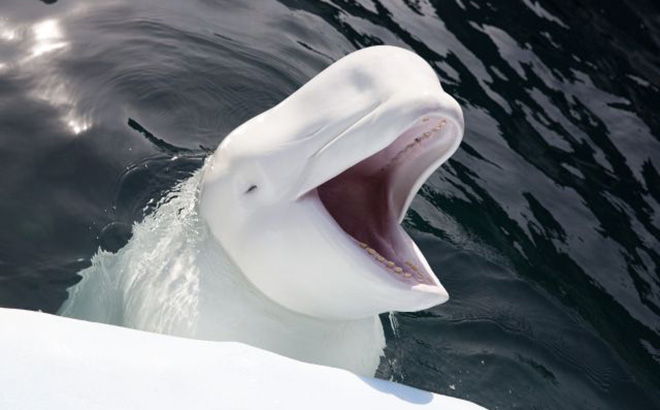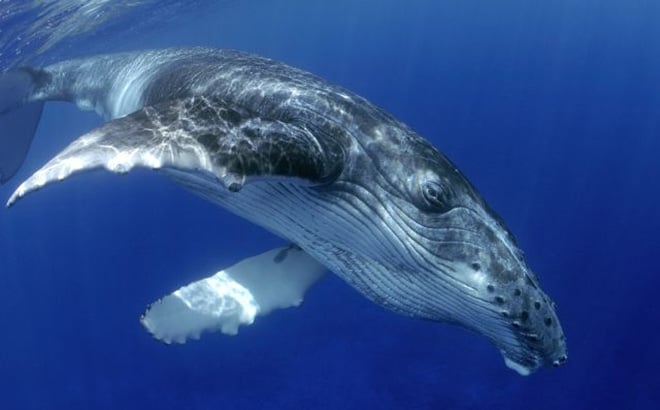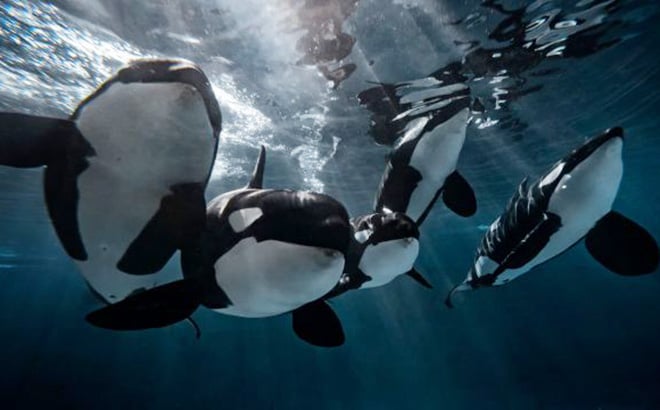Difference Between Whales and Dolphins
Family Ties and Physiology
First thing’s first: all dolphins are whales, but not all whales are dolphins. That’s because the Cetacean order of sea animals encompasses dolphins, porpoises and what we think of as whales. And Cetacean is derived from the Greek word for whale, ketos.
It may sound confusing, but all dolphins are simply smaller species of whales. The whale order (Cetacea) is divided into several different families, one of them being Delphinidae (this includes all oceanic dolphin species). For example, killer whales are the largest member of this dolphin family, so they are both a whale and a dolphin at the same time.
Because they belong to the Cetacean order, dolphins and whales share mammalian traits like warm blood, hair, and lung-based breathing. Other physical similarities include fins on their tails called flukes, streamlined bodies adapted for swimming and, in some cases, dorsal fins on their backs.
Let's Talk Teeth

There are two types of whales out there: baleen, or Mysticeti, and toothed, also known as Odontoceti. In mysticeti whales, stiff plates of baleen grow down from the gums of the upper jaw. These plates are perfect for filtering vast quantities of water and trapping plankton inside their mouths.
Heavy Breathers

When it comes to breathing, whales and humans alike are limited by their lung capacities. However, whales’ lungs can hold much more oxygen than land-walkers, meaning they can stay underwater for much longer before they return to the surface to breathe. Whales use blowholes to breathe—some even have two! Baleen whales have two blowholes, whereas toothed whales have just one.
Whales and Wails

Toothed whales have the ability to echolocate. This means they emit various clicking sounds through the water and wait for the rebounding sound waves to indicate where their prey or a specific object is. Echolocation also enhances their communication abilities. Baleen whales, such as humpbacks and blue whales, communicate through a series of “songs,” but not echolocation. When it comes to who is louder the competition between whales and dolphins is tight. A dolphin’s clicks, whistles, and pulsed sounds can reach up to 220 decibels. For reference, 150 decibels are loud enough to burst a human’s eardrum.
Sea of Smarts

Whales and dolphins communicate for a variety of reasons, such as teaching various hunting techniques, learning from other pod members, and cooperating with each other. Dolphins’ advanced communication abilities forge strong bonds within their pods. One of the most impressive characteristics is a dolphin’s ability to recognize signature whistles. Dolphins use these unique whistles to communicate identity, location, and to address other pod members. We often use nicknames; perhaps dolphins use click-names.
See Dolphins and Whales Up Close
Both whales and dolphins are incredible species that we should all continue to learn from, and about. If you are interested in the rare opportunity of seeing both in the same day, visit Seaworld Orlando and meet our resident dolphins and dine with the whales. Just be aware of the splash zone, as their flukes are known for being perfect for soaking guests!


